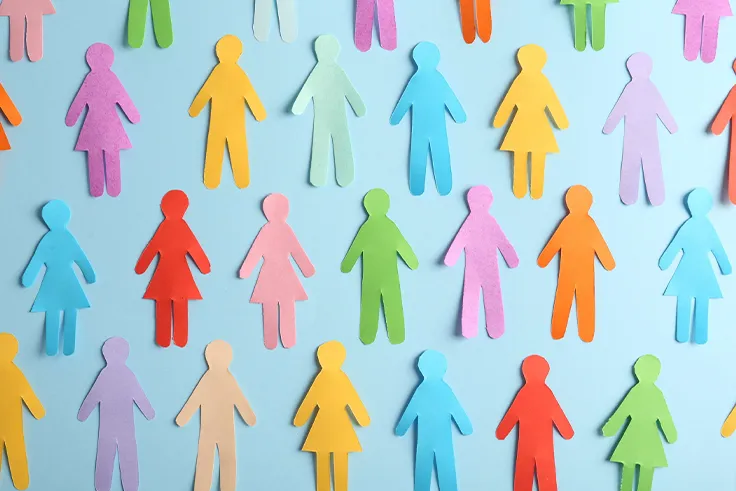Gender Differences In Mental Health

Gender differences influence our lives in various domains, including mental health.
Before diving into these differences, let us look at the terminology. Sex refers to biologically determined characteristics, while gender denotes culturally and socially shaped variations between men and women.
Society, how it is structured, and our role teach men and women what is expected of them. For example, within society, women are stereotypically expected to care for children more than men. All unconscious biases may also explain why men hold higher positions than women.
These mentioned scenarios can have an immense impact on the mental health of an individual. And it is our task, as therapists, to recognise these. You may ask yourself, why does gender matter in mental health? It matters since a gender approach to mental health caters guidance to identifying appropriate responses from the mental health care system.
In this blog, let’s unveil how these gender differences impact our mental health to gain awareness about this crucial topic.
Main Differences
Recent scientific studies have found momentous evidence. For example, doctors are more likely to diagnose women with depression than men. Furthermore, married women have higher admission rates to mental health facilities than men. Additionally, women are socialised to express dysphoria in reaction to stress, whereas men tend to use antisocial behaviour and alcohol abuse as a response. Moreover, women are more likely to develop post-traumatic stress disorder (PTSD) after experiencing traumatic events.
The higher prevalence rates of these conditions in women could be explained by the fact that women report more chronic strain, rumination, thought suppression, and negative problem orientation than men.
Besides these differences, it was also found that prevalence rates were equal among males and females in obsessive-compulsive disorder and that women develop schizophrenia later than men.
Differences In Adolescence
Gender differences in mental health can already be found in children. Where girls are more likely to internalise problems and be anxious, boys tend to externalise problems. Differences are also observed in coping strategies, symptomatology, and medication usage. Additionally, boys are referred to a psychologist younger than girls.
Moreover, there have been some changes in how gender differences influence mental health. For instance, in the past, adolescent girls have been the focus of prevention programmes for eating disorders since they were at high risk. However, nowadays, boys have also become at increased risk for developing eating disorders.
Differences In Parenthood
Even though parenthood is a shared journey between men and women, differences in mental health exist. For instance, women tend to report higher levels of psychological distress than men. Additionally, women are more likely to report internalised mental health problems than men.
Furthermore, parenthood has demonstrated significant and stable positive effects for women but not men. The average mental health levels are consistently lower for women than for men. Nevertheless, no significant mental health disadvantages were found, except for more intense mood fluctuations in women.
Exploring the influence of gender differences on mental health revealed a complex interplay between societal expectations, biology, and our culture. Understanding these differences is vital for mental health professionals and society. In this ever-evolving mental health landscape, it is crucial not to see these disparities as limitations but as opportunities for tailored empathetic care.
Afifi, M.M. (2007) ‘Gender Differences in Mental Health ’, Singapore Medical Journal [Preprint]. doi:10.11622/smedj.
Herrmann, L. et al. (2023) ‘Systematic review of gender-specific child and Adolescent Mental Health Care’, Child Psychiatry & Human Development [Preprint]. doi:10.1007/s10578-023-01506-z.
Metzger, S. and Gracia, P. (2023) ‘Gender differences in mental health following the transition into parenthood: Longitudinal evidence from the UK’, Advances in Life Course Research, 56, p. 100550. doi:10.1016/j.alcr.2023.100550.
Submit a Comment
Your email address will not be published. Required fields are marked *



